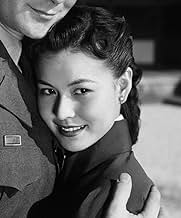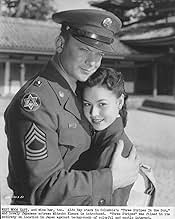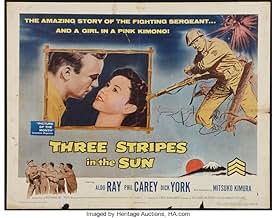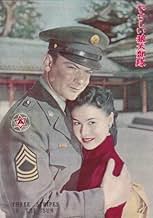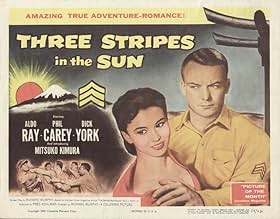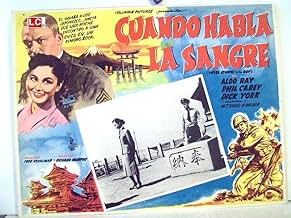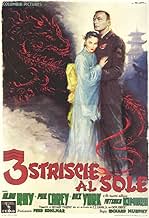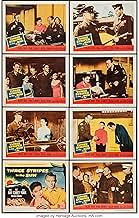Adicionar um enredo no seu idiomaArmy Master Sergeant Hugh O'Reilly is stationed in Japan after World War II. He hates the Japanese. He meets a pretty young Japanese woman, an interpreter for the Army, and through her learn... Ler tudoArmy Master Sergeant Hugh O'Reilly is stationed in Japan after World War II. He hates the Japanese. He meets a pretty young Japanese woman, an interpreter for the Army, and through her learns of an orphanage in need of help. He enlists other soldiers in an effort to rebuild the o... Ler tudoArmy Master Sergeant Hugh O'Reilly is stationed in Japan after World War II. He hates the Japanese. He meets a pretty young Japanese woman, an interpreter for the Army, and through her learns of an orphanage in need of help. He enlists other soldiers in an effort to rebuild the orphanage, and in doing so, begins to soften in his attitude toward the Japanese people.
- Direção
- Roteiristas
- Artistas
- Col. William Shepherd
- (as Phil Carey)
- Father Yoshida
- (as Henry Okawa)
- Konoya
- (as Tatsuo Saito)
- Self
- (não creditado)
- Maj. Charlie Rochelle
- (não creditado)
- Self
- (não creditado)
- Public Address Announcer
- (narração)
- (não creditado)
- Kanno
- (não creditado)
- Satsumi
- (não creditado)
- Self
- (não creditado)
- Yuko's Sister
- (não creditado)
- Direção
- Roteiristas
- Elenco e equipe completos
- Produção, bilheteria e muito mais no IMDbPro
Avaliações em destaque
Mitsuko Kimura was very good and endearing. I wonder of her acting career listed here was actually that limited. Philip Carey, Dick Sargent and Chuck Connors all were good in their supporting roles. It's kind of funny watching Chuck Connors pitch in a charity baseball game knowing he played professionally. Even though he did not pitch in the pros, it looks like he was laying off the fastball.
I also find this era in post-war Japan to be fascinating. Here you see some of Osaka and the lights of downtown Tokyo from the early-50s. It's too bad this was not filmed in color because there is some beautiful scenery around the Kyoto era.
Thank you to Alana O'Reilly and the Veterans here who give this story a personal face.
The story doesn't fall into the trap of being soppy or sickly sweet, and the depiction of army life is pretty realistic. A feelgood story, very well done. Highly recommended.
Você sabia?
- CuriosidadesChuck Connors' character plays for the Army baseball team in this movie, which is good casting because he was a professional baseball player in real life prior to his acting career, playing a total of 67 games in the major leagues in 1949 and 1951 for the Brooklyn Dodgers and Chicago Cubs. He also played in the minor leagues in 1940, 1942 and 1946-1952. Interestingly enough, he also played professional basketball, appearing in 53 games for the Boston Celtics in 1946-48.
- ConexõesReferences Banba no Chûtarô (1955)
Principais escolhas
Detalhes
- Tempo de duração1 hora 33 minutos
- Cor
- Proporção
- 1.85 : 1
Contribua para esta página


